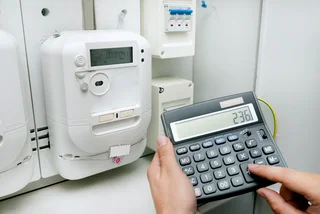Czech President Miloš Zeman signed an amendment to the Energy Act, which will allow the government to set the maximum price for electricity and gas. The government wants to limit the price of electricity to CZK 6 per kilowatt hour for power electricity and the price of gas to CZK 3 per kilowatt hour for consumers.
The amendment, which passed in the Senate yesterday, is a response to soaring prices due to the current increase in energy costs. Without caps, Prime Minister Petr Fiala's cabinet argues, the price of electricity, for example, could rise to CZK 12 kWh/year next year. The govt. can now issue the relevant regulations.
Prime Minister Petr Fiala said last week that capping power prices will save consumers up to CZK 9,285 per month if they use electricity for heating and water heating. "This measure means that no one will pay for electricity multiples of what they have been paying so far," he said. The ceiling also applies to gas. The amount of savings depends on the volume and type of energy the household uses. (Read more data here.)
Zastropovánà cen silové elektÅ™iny uÅ¡etřà odbÄ›ratelům až 9 285 KÄ mÄ›sÃÄnÄ› v pÅ™ÃpadÄ›, že použÃvajà elektÅ™inu k topenà a ohÅ™evu vody.
— Petr Fiala (@P_Fiala) September 13, 2022
ÚplnÄ› jednoduÅ¡e –â toto opatÅ™enà znamená, že nikdo nebude platit za elektÅ™inu násobky toho, co platil dosud. pic.twitter.com/XzJ0T2cmp7
The typical annual electricity consumption of Czech households is 1.9 Mwh. According to further government models, customers would pay approximately CZK 1,508 per month including tax next year, with the caps in place. Without caps, it could be as high as CZK 3,199 per month. Households that cook with gas would pay CZK 283 per month with caps and CZK 408 without caps. Households that heat with gas would pay CZK 5,993 with caps and CZK 11,913 without.
Customers will notice a decrease in their bills sometime in November. "At the same time, public service providers, such as municipalities, hospitals or schools, will purchase energy at the same price through a state-designated supplier," Fiala said.
The government will draw on increased dividends of state-owned enterprises (share in the profit of a joint-stock company), war tax, and surplus revenues from the sale of emission allowances.












 Reading time: 1 minute
Reading time: 1 minute 






















